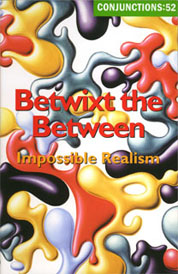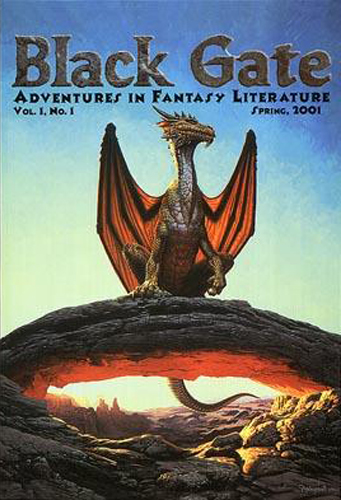Censorship, Appropriateness, Taste
 The august editor of Black Gate once asked me to remove two occurrences of the f-word in a story, because, he said, of wanting to be able to sell the magazine to high-school libraries. While it proved remarkably hard to find a substitute with the resonance I wanted, in this case referring to brief and utterly non-romantic sex, I didn’t mind the request.
The august editor of Black Gate once asked me to remove two occurrences of the f-word in a story, because, he said, of wanting to be able to sell the magazine to high-school libraries. While it proved remarkably hard to find a substitute with the resonance I wanted, in this case referring to brief and utterly non-romantic sex, I didn’t mind the request.
In contrast, I did mind another editor’s demand to remove quite a bit of content from my novel Bear Daughter. “Just because it’s in ethnography,” she kept repeating, “doesn’t mean it should be in your book!” One of the things she was most bothered by were the references to post-partum bleeding, and the magical protection it briefly provided against the Giant Carnivorous Bird of the Underworld. I still for the life of me don’t understand her squeamishness–especially given a couple of violent and bloody scenes, one involving exploding frogs and mass dismemberment, that didn’t seem to faze her at all. In this instance I kept the (female reproductive) blood. …
 The spring issue of Conjunctions, the literary magazine of Bard College, is called “Between and Betwixt: Impossible Realism,” described as “postfantasy fictions that begin with the premise that the unfamiliar or liminal really constitutes a solid ground on which to walk.” This is a follow-up to its “New Wave Fabulist” issue back in 2003, which I reviewed for
The spring issue of Conjunctions, the literary magazine of Bard College, is called “Between and Betwixt: Impossible Realism,” described as “postfantasy fictions that begin with the premise that the unfamiliar or liminal really constitutes a solid ground on which to walk.” This is a follow-up to its “New Wave Fabulist” issue back in 2003, which I reviewed for  Recently I received a bit of a surprise when I went to a local library that has long been one of my ambush zones for the acquisition of unsuspecting books. All those lovely 25 cent mass market paperbacks with the stickers on the spine, all those nicely broken-in trades, all those hardbacks with the covers mylared over and glued down, were gone. Vanished. Whisked away on an electron breeze to inhabit the alternate world of the internet.
Recently I received a bit of a surprise when I went to a local library that has long been one of my ambush zones for the acquisition of unsuspecting books. All those lovely 25 cent mass market paperbacks with the stickers on the spine, all those nicely broken-in trades, all those hardbacks with the covers mylared over and glued down, were gone. Vanished. Whisked away on an electron breeze to inhabit the alternate world of the internet.

 As a follow-up to
As a follow-up to